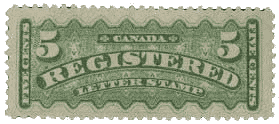Responsa Literature: partial replies to scattered letters
http://luckysoap.com/responsa/

Introduction: confessions of an avid letter writer
Why is it that everyone I know lives in New York?
Part I: Writing is Hard
“Irene left a note on his kitchen table. The spelling was weak and Irene, examining her note, marvelled at how difficult writing things down was compared to saying them. Saying something was as easy as laughing; writing caused you grief, as though you were mourning somebody who had abandoned you too soon.”
Rose Tremaine, Sacred Country
Part II: Writing from Exile
“Is the place any token of the author?”
“indicat auctorem locus?”
Ovid, EX PONTO, I. VII.
Part III: Responsa
“What conditions precipitate the writing of a letter? A physical distance separates the writer from the reader and we write to cover that distance. Wherever we are, when we write, we write from a local position. Time passes between the writing of the letter and the reading of it; more time passes between the reading and the reply. ‘Between the too warm flesh of the literal event and the cold skin of the concept runs meaning.’ [Derrida] From his exile at the edge of the Empire, Ovid writes: ‘“In so long a time why has not they hand done its duty and completed even a few lines?’ The reply embodies another question. ‘Is not the writing of the question, by it’s decision, by its resolution, the beginning of repose and response?’ [Derrida]”
J. R. Carpenter, Responsa
Part IV: Network Communication
Me: Hey, how come this anonmous ftp thing doesn’t work?
Tech: You spelled anonymous wrong.
Me: Again.
Me: I heard about this thing called pine for reading email.
Do you know about that?
Tech: Yeah.
Me: Well, how do I get it?
Tech: Pine is for weenies.
Me: I’m a weenie.
Tech: vi editor rules.
Me: I want pine.
an escerpt from the essay:
“A brief history of the Internet as I know it so far”
J. R. Carpenter 2003.
Part V: Location, Location, Location
When we write, we write from a local position.
“My dear Herr Kappus: I have left a letter of yours long unanswered, not that I had forgotten it – on the contrary: it was of the kind that one reads again when one finds it among other letters, and I recognized you in it as if you were close at hand. It was the letter of May 2nd, and you doubtless remember it. When I read it, as I do now, in the great stillness of this faraway place, your beautiful concern for life moves me even more than I experienced it in Paris, where everything has a different ring and dies away by reason of the monstrous noise that makes all things tremble. Here, where a vast countryside is around me, over which the winds come in from the seas, here I feel that there is nowhere a human being who can answer you those question and feelings which have a life of their own within their depths; for even the best men go astray with words, where these are to express something very gentle and almost unutterable.”
Rainer Maria Rilke, written from ‘Temporarily at Worpswede near Bremen, July 16th, 1903. Letters to a Young Poet
Part VI: Optimism
“Router level Interconnectivity of the Internet looks like a giant, blood-shot eyeball.” from “Digital Crustaceans v.0.2: Homesteading on the Web” and art review by J. R. Carpenter of a show
Ingrid Bachmann at Gallery Articule, Montréal, Québec, April 4 – May 4 2003.
“Pookie” – a biological, digital, quasi-fictional manifestation of Ingrid Bachmann’s imagination – explores a fascinating corner of the web at www.digitalhermit.ca
In Closing:
“Nothing is more occult than the way letters, under the auspices of unimaginable carriers, circulate through the weird mess of civil wars; but whenever, owing to that mess, there was some break in our correspondence, Tamara would act as if she ranked deliveries with ordinary natural phenomena such as the weather or tides, which human affairs could not affect, and she would accuse me of not answering her, when if fact I did nothing by write to her and think of her during those months – despite my many betrayals.”
Vladimir Nabokov, Speak, Memory
Related Links:
Nomad Web: Sleeping beauty awakes, by Ingrid Bachmann
http://www.research.umbc.edu/~lmoren/nomadweb.htm
the electronic version of The Virtual Community, by Howard Rheingold
http://www.rheingold.com/vc/book/intro.html
A Vernacular Web, by Olia Lialina
http://art.teleportacia.org/observation/vernacular/
A little Talk About Reproduction, by J. R. Carpenter
http://luckysoap.com/reproduction/
All this with pictures:
http://luckysoap.com/responsa/

. . . . .